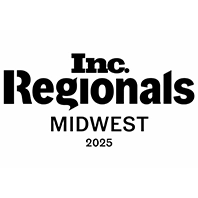Key Takeaways
Renting out a property is a popular and lucrative way to earn income through investment.
However, being a landlord comes with a lot of challenges that some property owners may underestimate the importance and complexity of.
Partnering with a property management team like Landmark Property Management can streamline your investment efforts, maximize income, and minimize stress.
Renting out a home in Chicago can be a profitable way to earn income while retaining a valuable asset, but it requires more than simply advertising the property. With over one-third of Chicago households as rentals and strong demand for housing, landlords must still follow strict legal requirements under Illinois law and the Chicago Residential Landlord and Tenant Ordinance (RLTO).
Failure to comply can lead to fines, lawsuits, and other costly issues. This guide from Landmark Property Management outlines the steps landlords should take to rent their property while staying compliant and safeguarding their investment.
Preparing to Successfully Rent Out Your Chicago Home
Assess Your Readiness to Rent
Before you start, evaluate whether you are ready to become a landlord. This means understanding the legal obligations under Illinois law and the RLTO. For example, in Chicago, you must provide tenants with a summary of the RLTO and, in certain cases, a lead-based paint disclosure if the home was built before 1978. You also have to comply with fair housing laws at the federal, state, and city levels, meaning you cannot discriminate against tenants based on protected characteristics.

Consider your financial readiness as well. You will need to cover ongoing costs like property taxes, insurance, utilities (if included), maintenance, and potential vacancies. In Illinois, security deposits must be handled with care. Chicago landlords must pay annual interest on security deposits held for more than six months and return the deposit within 45 days after the lease ends, minus allowable deductions with proper documentation.
Upgrade and Stage the Property
A well-maintained and attractive property is more likely to rent quickly and command a better rate. Make sure all major systems are in good working order, including plumbing, heating, cooling, and electrical systems. In Chicago, heating systems must be able to maintain a minimum temperature of 68 degrees Fahrenheit from September 15 through June 1, as required by the city’s heat ordinance.
Consider making upgrades that appeal to local renters. Fresh paint, updated appliances, and modern fixtures can improve marketability. Stage the home with clean, uncluttered rooms so potential tenants can picture themselves living there. Safety is also critical; check that smoke detectors and carbon monoxide detectors meet Illinois requirements and are in working order.
List and Promote the Home
Once your home is ready, you need to let potential tenants know it is available. Create a detailed rental listing with clear photos, a complete description of the property, rent amount, lease terms, and any included amenities. Mention details that are specific to Chicago renters, such as proximity to public transportation, parks, and schools.
When marketing your rental, be sure to follow Illinois and federal advertising rules. Avoid language that could be considered discriminatory. For example, you cannot state “no children” or “ideal for singles” because it violates fair housing protections.

Engage Trusted Service Providers
Many landlords choose to work with property management professionals to save time and ensure compliance. A property management company can handle multiple aspects of renting out a property, including:
Property Marketing: Creating and promoting high-quality listings, arranging showings, and ensuring the property is presented in its best light.
Leasing Agreements: Drafting leases that comply with Illinois landlord-tenant law and the RLTO. For instance, Chicago leases must disclose building code violations and provide certain notices about tenant rights.
Move-In Inspections: Documenting the condition of the home with written checklists and photographs to avoid disputes later. Illinois law requires landlords to allow tenants to be present at move-in and move-out inspections if they request it.
Regular Property Inspections: Scheduling periodic inspections to check for maintenance needs and ensure the property is being cared for, while respecting tenant privacy and providing proper notice.
Maintenance and Repairs: Coordinating licensed contractors for repairs and ensuring urgent issues, such as lack of heat in winter, are addressed promptly. Under Chicago law, failure to provide essential services can allow a tenant to withhold rent or terminate the lease.
Tenant Screening: Conducting thorough background checks, credit checks, and rental history reviews. In Chicago, landlords must follow the Just Housing Amendment, which limits how criminal history can be considered in the tenant screening process. You must first evaluate an applicant’s qualifications (income, credit, etc.) before reviewing any criminal background, and certain offenses cannot be considered after a set period.
Rent Collection with Online Payments: Offering secure online rent payment options to reduce late payments and improve cash flow.

Verify Tenant Qualifications
Screening tenants carefully is one of the most important steps in protecting your property and income. In Illinois, you can evaluate factors such as income, employment stability, credit score, rental history, and references. However, you must apply the same screening criteria to all applicants to avoid discrimination claims.
In Chicago, security deposit rules and application fee regulations are strict. Many landlords choose to collect a non-refundable move-in fee instead of a traditional security deposit to avoid compliance risks. If you do collect a security deposit, be aware of the city’s requirements for interest payments, storage, and return.
Bottom Line
Renting out your house in Chicago can be profitable, but it requires careful planning, compliance with Illinois and Chicago-specific laws, and ongoing management. You must be ready to meet your legal obligations, maintain your property to required standards, and select tenants who will respect your home. Preparing the property, marketing effectively, and following proper screening procedures can significantly reduce risks and increase your chances of a positive landlord experience.
Landmark Property Management can assist landlords with every step of this process. From marketing and tenant screening to lease preparation, inspections, rent collection, and maintenance coordination, our team understands the legal requirements in Chicago and Illinois. We work to keep properties compliant, occupied, and well-maintained, helping you protect your investment and maximize your rental income. Contact us today to discuss how we can make renting out your house in Chicago a stress-free and profitable experience.






.png)


